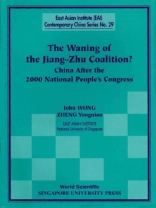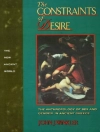With mounting discontent due to widespread unemployment, corruption and misgovernment, the Ninth National People’s Congress in March 2000 was a letdown. Significant though was Premier Zhu Rongji’s announcement at the Congress of the leadership’s decision to go west. While Zhu explained the policy shift as the government’s attempt to develop the country’s inland regions, many are skeptical, dismissing it as a camouflage for the premier’s failure in the reform programmes introduced when he came to power. On the international front, with the US ambivalence in regard to China’s WTO accession and China’s apparent loss of grip on cross-straits relations, the future of the Jiang leadership appears to be in the balance.Against this background of neiyou waihuan (internal disturbance and external threats), will the Jiang-Zhu coalition be able to rise to the occasion and push through its many reform programmes, let alone retain its hold on power? China After the 2000 National People’s Congress, (I) and (II) address this and related questions, giving an in-depth analysis of recent developments and changes in the power relations among China’s top leaders, especially the Jiang-Zhu coalition.
Wong John Wong & Zheng Yongnian Zheng
Waning Of The Jiang-zhu Coalition, The: China After The 2000 National People’s Congress [PDF ebook]
Waning Of The Jiang-zhu Coalition, The: China After The 2000 National People’s Congress [PDF ebook]
Mua cuốn sách điện tử này và nhận thêm 1 cuốn MIỄN PHÍ!
Ngôn ngữ Anh ● định dạng PDF ● Trang 48 ● ISBN 9789814492768 ● Nhà xuất bản World Scientific Publishing Company ● Được phát hành 2000 ● Có thể tải xuống 3 lần ● Tiền tệ EUR ● TÔI 8183649 ● Sao chép bảo vệ Adobe DRM
Yêu cầu trình đọc ebook có khả năng DRM












